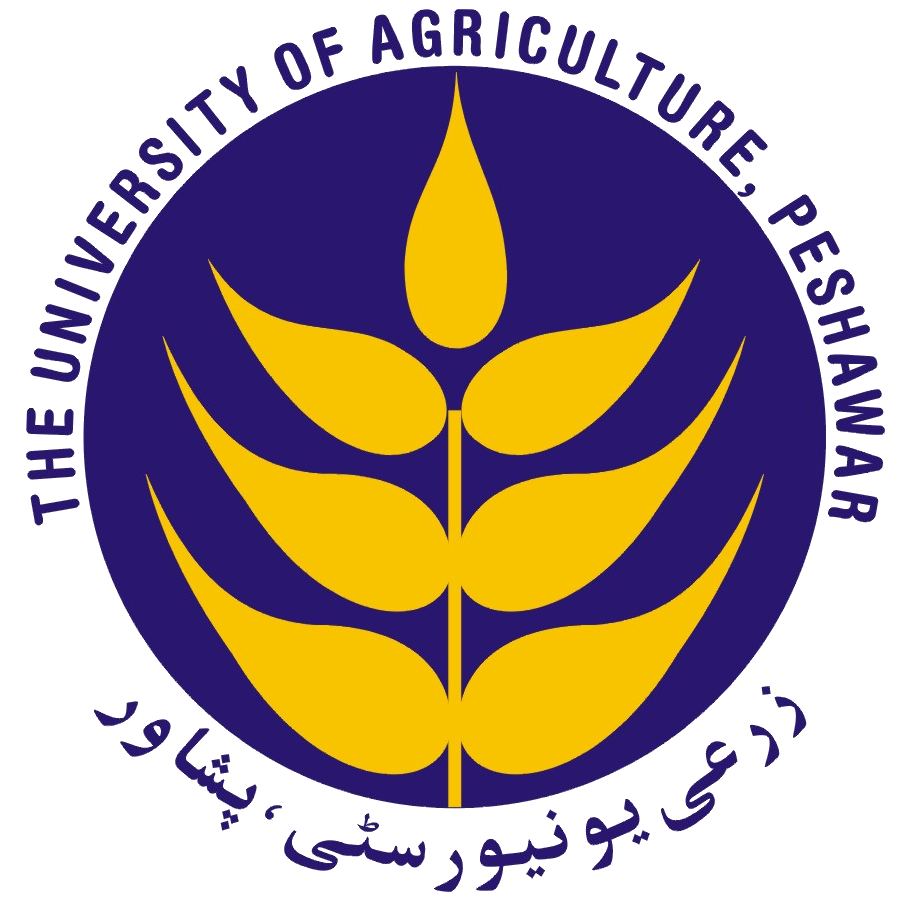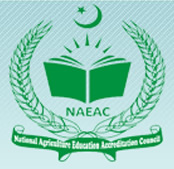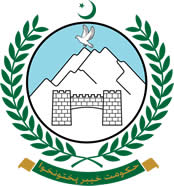About Faculty
Housed in the University of Agriculture, the Faculty of Rural Social Sciences (FRSS) is one of the largest and leading faculties of the university in terms of faculty and students.
Mission Statement
The Faculty of Rural Social Sciences seeks to provide an excellent student experience and transform the wider socio-economic environment towards sustainable competitiveness via fostering credible research, innovation and alignment of academics and values to the future economy.
Vision Statement
To be socially engaged and solutions oriented, our goal is to encourage students to develop strong critical thinking, analytical reasoning, problem solving and communication skills and creative talents that will foster their development as knowledgeable, engaged and confident citizens and leaders.
Guiding Principles
The Faculty of Rural Social Sciences is dedicated to achieve its goals and mission based on the following guiding principles:
- Our first priority is our academic mission: the advancement and dissemination of knowledge. We aim to create and support high quality academic programs that attract and retain the most highly qualified students, faculty and staff and allow us to become a 'destination' Faculty nationally and internationally.
- Research intensity will continue to be a hallmark of our mission, distinguishing the Faculty within our region and reflecting our distinctive profile nationally and internationally.
- We place high value on the intersection of learning and imparting trainings, and view our undergraduate and graduate degrees as contributing to students' capacities to understand global processes, make positive contributions and enhance their career prospects.
- Our academic programming builds understanding of emerging and requires students to inquire critically, read deeply, write cogently, and express themselves thoughtfully in a wide range of academic disciplines.
- We affirm the principles of academic freedom, intellectual integrity, scholarly autonomy and individual expression in teaching, administration and research
The FRSS contains the following Institute and teaching Departments.
1). Institute of Development Studies (IDS)
The Institute of Development Studies is unique and first of its kind in the country. It is a leading Institute for Development research, teaching, and training. The IDS offers academic programs leading to the degrees of BSc (Hons), MSc (Hons) and PhD in Rural Development and Economics. We aim for a sustainable society through improving lives of people especially those living in the rural areas of the province. We lay emphasis on quality teaching and research in applied economics and rural development. Our academic programs are based on theory and quantitative methods of economic analysis & research in line with international standards of teaching & research in the field of Economics and Rural Development. We are proud of the distinguished community of our graduates, who have successful career-paths as development specialists and economists.
The Institute of Development Studies (IDS) was formerly the Board of Economic Enquiry (BEE), which was established in 1953. The Board, financed by the Government of Khyber Pakhtunkhwa, was attached to the University of Peshawar for the express purpose of undertaking and promoting socio-economic investigations in the Khyber Pakhtunkhwa and adjoining tribal areas. It was established as a semi-autonomous organization managed by a governing body having the University of Peshawar Vice-Chancellor as ex-officio chairman, with one representative of each of the development departments of Khyber Pakhtunkhwa as members, and the BEE Director as member/secretary. The BEE was initially established as a temporary project financed through a grant-in-aid on a year-to-year basis.
In 1977, when the staff base had been reasonably well developed, and research activity had become more diversified, BEE was re-designated as the Institute of Economic Studies (IES) without a change in its organizational set-up. By this time the grant-in-aid had reached Rs. 200,000. Four years later, in 1981, IES was upgraded to be the Institute of Development Studies (IDS) and merged with the Agricultural University Peshawar. With this upgradation the Institute became an integral part of AUP, its funding base expanded, and its functions broadened. Currently, the Institute offers 6-degree programmes in two disciplines of Economics and Rural Development. These include B.Sc (Hons), M.Sc (Hons) and Ph.D in Rural Development as well as BS, M.Phil and Ph.D in Economics. The Institute has produced a large number of undergraduate and post-graduate students in Economics and Rural Development.
2). Department of Agricultural and Applied Economics
The Department of Agricultural & Applied Economics prepares students to analyze economic problems systematically and objectively, and to come up with practical solutions. It seeks to equip students for a wide range of roles in the private sector as well as in the public sector. The faculty keeps contacts, with students after they graduate, and seeks to reinforce work with personal guidance, useful research studies and training for their associates. This Department offers an introductory course in Agricultural & Applied Economics and Development Issues, Rural Sociology and Farming Systems Management, that are taken by all students in the university. Elective courses in accounting and entrepreneurship are also offered.
The Department strives to make these courses as understandable, useful and interesting as possible. Many of the students continue to complete M.Sc. (Hons.) degree in Agricultural & Applied Economics. The first year of post-graduate work is devoted to advanced courses. These courses include Agriculture Production Economics, Advance Micro and Macroeconomics, Research Methodology, Advance Marketing Analysis, Agriculture Price Policy Analysis, and Resource Economics. In the second year, each student prepares a thesis based on his/her own research. Sometimes financial help and valuable teamwork experience are offered by linking thesis studies to research or consulting project of the University, pilot programs in rural areas, or internships with national agencies. Additionally, the Department also offers Ph.D. degree in various fields of Agricultural & Applied Economics such as Agricultural Marketing, International Trade, Agricultural Policy and other related areas.
3). Department of Agricultural Extension Education and Communication
The Department of Agricultural Extension Education and Communication at The University of Agriculture Peshawar, established in 1990, plays a vital role in advancing agricultural development through the effective use of communication and extension services. The department is committed to bridging the gap between research, agricultural practices and rural communities by equipping students with the knowledge and skills needed to address the challenges faced by the agricultural sector.
Agricultural Extension Education and Communication are vital components in promoting sustainable farming practices, improving food security and enhancing the livelihoods of rural populations. Through effective communication strategies and extension methodologies, the department prepares students to become leaders in the field, enabling them to transfer knowledge to farmers, enhance agricultural productivity and drive rural development initiatives.
Our highly qualified faculty impart knowledge in agricultural extension, leadership and management, communication technologies, formal and non-formal education, agricultural policy along with current scenarios of climate change, food security and guide the students through innovative research projects and extension approaches. Their expertise ensures that students receive updated knowledge that addresses both local and global challenges in agriculture and rural development.
The department offers comprehensive degree programs at various levels, including 3 years Diploma in Agricultural Sciences (DAS), BSc (Hons), MSc (Hons) and PhD in Agricultural Extension Education and Communication. These programs are designed to provide students with both the theoretical knowledge and practical experience in agricultural communication, extension services, rural development and policy research. Over the years, numerous students have conducted significant research in the field of extension education, contributing valuable insights and solutions to the agricultural sector.
Graduates from the Department of are employed in various sectors, including Provincial Agriculture Extension Department, Soil and Water Conservation, Government agencies, Non-governmental organizations, private agricultural extension services agencies, Forestry, Research institutions, Social Sciences Institutes (SSI) of PARC Islamabad, FAO and the private sector. They are equipped to lead transformative projects that improve farming practices, support rural communities and contribute to sustainable development goals in the country.
In addition to the primary aim of providing higher education in this specialized field, the Agricultural Extension Education and Communication is helping, collaborating and providing services of teaching, research and outreach through FM (100.4) Radio Station intended to be TV Station in near future for conveying the fruitful research of the Agriculture University Peshawar carried on by the students, experienced and specialized faculty for utilization of farming community to create awareness about climate smart agriculture, recent burning issues in agriculture & livestock, food security and poverty alleviation.
4). Department of Rural Sociology
The Department of Rural Sociology activated in March 2006 by probing the University Ordinance 1981. It offers B.SC (Hons), M.SC (Hons) on Rural Sociology. It has also initiated by advertising its PhD program in 2009. It has a unique character of offering/imparting M.A (Rural Sociology) of two years duration on Self Supporting Education Program (SSEP) grounds, this generation millions of rupees to the University annually.
5). Department of Maths, Stats, and Computer Science
Department of Mathematics, Statistics and Computer Science was established in 1963. The ever fist computer laboratory of the university was also setup in this Department in 1986. With the advent of computer technology, computer science as a compulsory subject was introduced, in the curricula of agriculture, at graduate level in 1987. Presently, this multi-disciplined Department disseminates knowledge in these three important science subjects at graduate and postgraduate level under the revised scheme of studies of the Higher Education Commission (HEC). It is a fact that agricultural development is not possible without intensive research and Computational sciences play a vital role in this connection. Specifically, Statistics is the major subject taught to enable the students in planning and designing of their experiments in the field, laboratories, green-houses or screen-houses etc. There are two computer laboratories and one Statistics laboratory in the department. Both the computer laboratories are connected through Network and having the Internet facility through the main server of the university. Various Statistical packages like MSTATC, SPSS, Statistix, SHAZAM, R and Mathematica have been installed in these laboratories to cater to the needs of the students as well as faculty members from various disciples of agricultural sciences. It is pertinent to mention that the department has started degree program in M.Sc statistics since 2011 under the self supporting education program (SSEP). The department has also initiated M.Phil program in statistics and will subsequently start PhD program shortly. Moreover, under the future vision of the department, the department may start B.S. (4 Years) programs in Statistics and Mathematics, M.Sc (2 years) in Mathematics, and M.Phil and PhD degree programs in Mathematics, shortly.
6). Department of Islamic/Pak Studies
In modern day world, our society and beloved country need such a magnanimous scholars and experts, who beside having potent knowledge of Islam, bear the capacity of facing the challenges of the modern age, dealing effectively with the new demands, and hold the perception of future prudence. For such glorious purpose, The department utilizes all its available resources in producing scholars in the fields of Quran, Hadith Islamic Jurisprudence etc, who according to the new trends and disposition of the modern age, got the authority to interpret & elucidate Islam and different off-shoots of Islamic knowledge. For this magnificent purpose CRS besides teaching activities introduces M.Phil and PhD programs in Islamic Studies for the professional growth of scholars in the field of research. The department works with a vision to ensure that every Muslim, in general, and students of the university, in particular, contains the Islamic and ethical values. The department aims at making them practical and model moderate Muslims. In addition to Islamic Studies, this department also contains Pakistan Studies as a compulsory component of the faculty.
7). Department of English
Department of English came into being in 1963. The Department caters to English language teaching needs of the whole university with emphasis on teaching Technical Writing to enable students to write thesis and research articles effectively. Besides teaching, the department is actively engaged in providing forum to the students for Co-curricular activities.
Contact
Faculty of Rural Social Sciences
Phone Office: +92 91 9221252,
Exchange: +92 91 9221304-11 Ext: 3080
P.A Ext: 3138
Mobile: +92 333 9125263
Email: drzafar@aup.edu.pk
Mailing Address: Dean, Faculty of Rural Social Sciences, The University of Agriculture, Peshawar 25130, Khyber Pakhtunkhwa, Pakistan.







